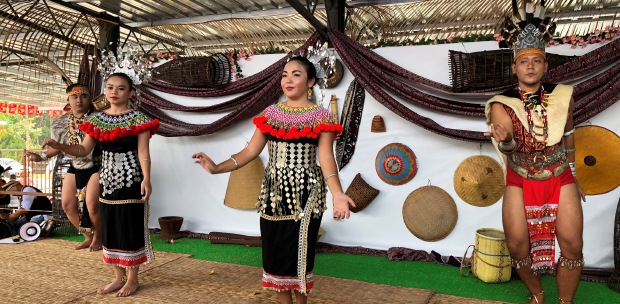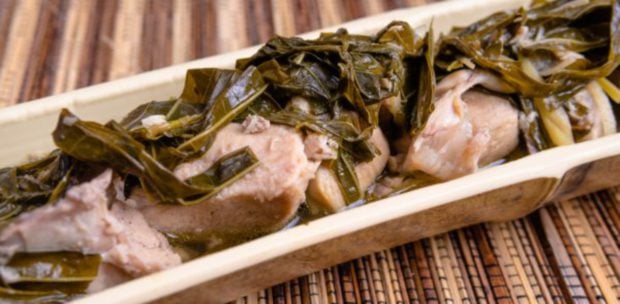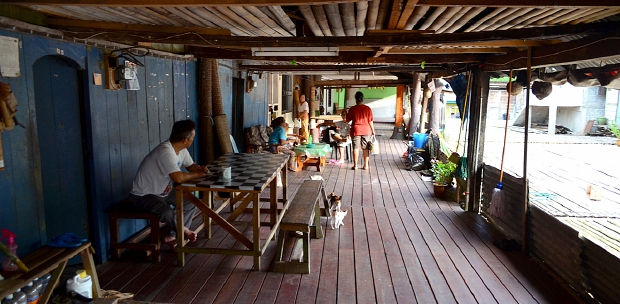THERE is a narrative which many in Sarawak want to believe in.
It is that the state is an exemplary model of cheerful tolerance among its diverse groups of people. They are composed of Dayaks (a collective of more than two dozen native tribes, the most numerous of which are the Ibans, followed distantly by the Bidayuhs), the Malays (including Muslim Melanaus, a small ethnic group further divided into Christian and animist Melanaus) and the Chinese.
Sarawakians never tire of comparing this ethnic hotchpotch favourably with its peninsula counterpart.
Even visitors from the peninsula often observe how Sarawakians appear to have an easy everyday interaction with each other across their obvious ethnic divides, unlike the somewhat strained relationship among the major races prevailing in the peninsula.
While such a saccharine self-image Sarawakians by and large hold may be superficially self-evident and animate much of the current discussion about whether the state might be better off on its own, the better to be rid of the supposed toxic inter-communal relations in the rest of the country, I always have my doubts that whatever obtains in Sarawak necessarily is different.
What is certainly different in Sarawak is the fact that none of the three major ethnic groups constitutes a majority of the population.
That being so, Sarawakians perhaps instinctively realise they have to live and let live among themselves as no one group can realistically "dominate" the others.
As well, the modern-day narrative of multi-ethnic Sarawakians harmoniously carving out a state at peace with itself unfortunately is not reflective of its recent history.
What started out as little more than a principality of the Brunei sultanate around Kuching was a rather quarrelsome and sometimes violent lot until the arrival of British adventurer Sir James Brooke in 1839.
Brooke was made rajah on account of his success in quelling what was generally and perhaps conveniently and euphemistically labelled as piracy.
The expansion of the raj to Sarawak's current size is through a series of suchlike battles.
One of the most dramatic of such a violent history has to be the Bau rebellion of 1857 when early Chinese settlers in the gold-mining district near Kuching, furious over onerous taxes, set upon the rajah's bungalow, killing five Europeans and parading around town the head of one of them, mistakenly believing it was the rajah's.
The rajah, meanwhile, enlisted Malay supporters, a force of Iban soldiers and with the assistance of local Bidayuhs from Bau, surrounded and killed the rebels. A massacre of 3,000 ensued, their bodies left to rot in the open, in what was said to be how Bau got so named.
The durability of the century-old Brooke raj was no doubt owing to superior military prowess against assorted rebels and pirates and classic political divide-and rule methods, buying legitimacy with peaceable Malays by conferring the title of 'datu' on their leaders, awarding business concessions to favoured Chinese leaders as well as making 'temenggong' of friendlier Dayak leaders while keeping the more war-like ones subdued.
It was no mean feat keeping such a disparate people and state whole. Lesser sovereigns than James Brooke and his nephew Charles might not have hacked it, which was exactly the reason why Vyner, the third rajah, ceded his kingdom to Britain in 1946.
Would anyone within Sarawak, then as now, have the verve, tenacity, wiles and especially the indisputably unchallenged authority to execute the feat of keeping the state together without help in one form or another from an external source?
I will not hazard a guess. Equally, I will not so readily assume that the popular narrative that Sarawakians effortlessly and happily adhere to one another, as they seem to be currently, is the most logical and natural default state.
The writer views developments in the nation, region and wider world from his vantage point in Kuching
The views expressed in this article are the author's own and do not necessarily reflect those of the New Straits Times






